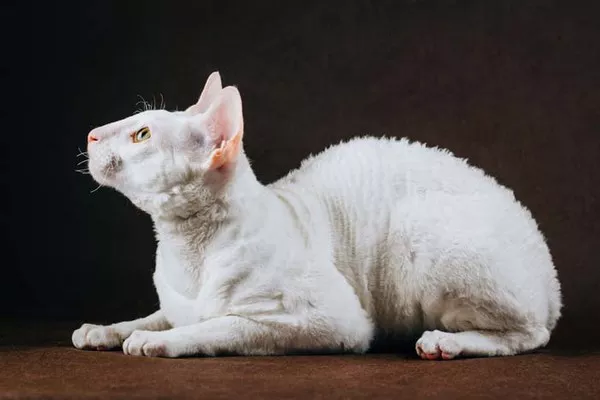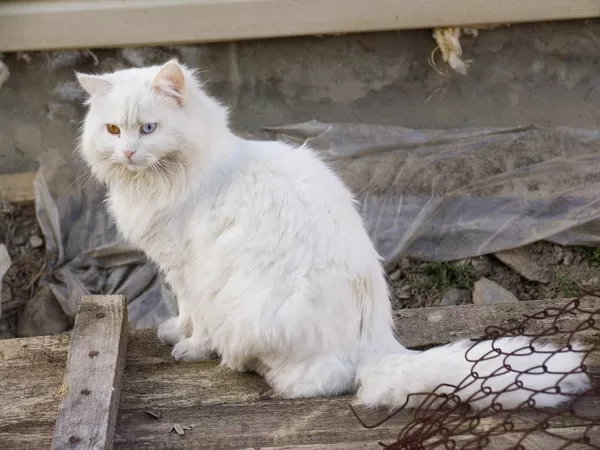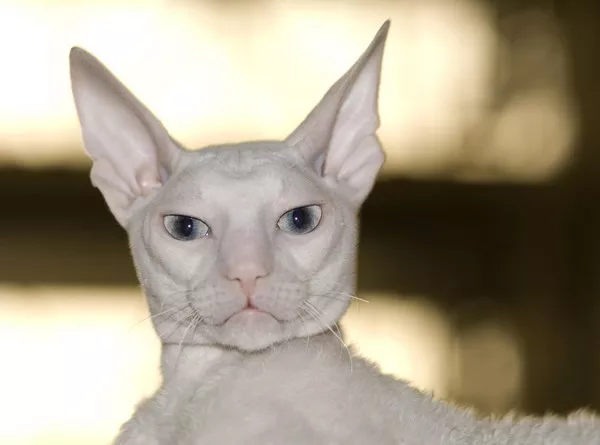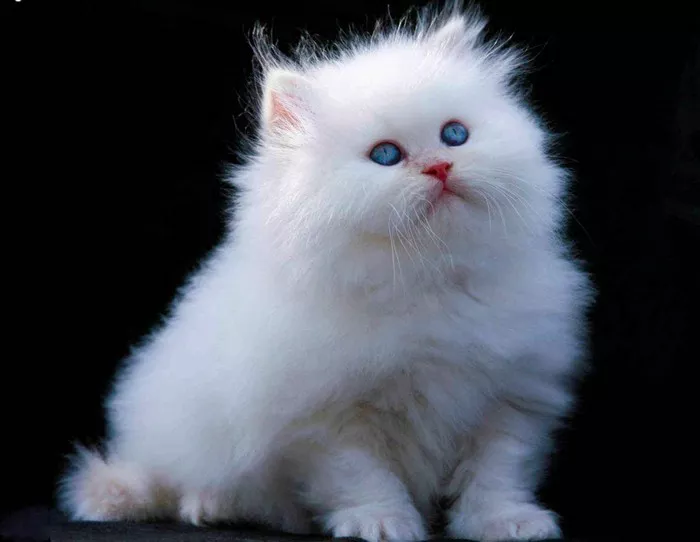Cornish Rex cats are known for their unique appearance, playful nature, and affectionate personalities. Female Cornish Rex cats have specific dietary needs to maintain their ideal weight and overall health. This article will explore the ideal weight range for female Cornish Rex cats, provide feeding tips, and offer insights into maintaining their health and well-being.
Ideal Weight for Female Cornish Rex Cats
Understanding the Breed
The Cornish Rex is a distinctive breed characterized by its soft, wavy coat, large ears, and slender, athletic body. Originating from Cornwall, England, this breed is known for its elegance and agility. Despite their delicate appearance, Cornish Rex cats are robust and muscular.
Ideal Weight Range
For female Cornish Rex cats, the ideal weight typically ranges between 6 to 8 pounds (2.7 to 3.6 kilograms). However, individual cats may vary slightly based on factors such as genetics, age, and overall health. It’s important to focus on the cat’s body condition rather than just the number on the scale.
Factors Influencing Weight
Several factors influence the ideal weight of a female Cornish Rex:
Age: Younger cats, particularly kittens, will naturally weigh less than adults. Senior cats may also experience weight changes due to age-related health issues.
Activity Level: Cornish Rex cats are known for their high energy levels. An active cat may have more muscle mass and a leaner body.
Health Status: Underlying health conditions can affect a cat’s weight. Regular veterinary check-ups are essential to monitor and address any health concerns.
Feeding Tips for Female Cornish Rex Cats
Protein
Protein is crucial for maintaining muscle mass and overall health. Cornish Rex cats, being active and agile, require a diet rich in high-quality protein. Look for cat food that lists meat, fish, or poultry as the first ingredient.
Fats
Fats provide essential fatty acids and are a concentrated source of energy. A moderate amount of healthy fats is necessary for a Cornish Rex cat’s diet. Ensure that the cat food contains omega-3 and omega-6 fatty acids, which are beneficial for skin and coat health.
Carbohydrates
While cats are obligate carnivores and do not require carbohydrates in their diet, some commercial cat foods include carbohydrates as fillers. Choose cat food with low carbohydrate content and focus on those that use complex carbohydrates like sweet potatoes or peas.
Vitamins and Minerals
A balanced diet should include essential vitamins and minerals, such as taurine, calcium, phosphorus, and vitamins A, D, and E. These nutrients support overall health, including vision, bone strength, and immune function.
See Also: Can Burmese Cats Eat Scrambled Eggs?
Feeding Guidelines
Portion Control
Controlling portion sizes is vital to prevent overfeeding or underfeeding. The recommended daily amount varies based on the cat’s age, weight, and activity level. Generally, an adult female Cornish Rex requires about 180 to 200 calories per day. Consult your veterinarian for specific portion recommendations tailored to your cat’s needs.
Meal Frequency
Cornish Rex cats benefit from multiple small meals throughout the day rather than one or two large meals. This feeding approach mimics their natural hunting behavior and helps maintain steady energy levels. Split the daily portion into 3-4 smaller meals.
Hydration
Adequate hydration is essential for a Cornish Rex cat’s health. Provide fresh water at all times. Consider incorporating wet cat food into their diet, as it contains higher moisture content compared to dry kibble, aiding in hydration.
Choosing the Right Cat Food
Commercial Cat Food
Opt for high-quality commercial cat food that meets the nutritional standards set by the Association of American Feed Control Officials (AAFCO). Choose formulas specifically designed for adult cats, as they provide balanced nutrition tailored to their needs.
Wet vs. Dry Food
Both wet and dry cat food have their benefits. Wet food offers higher moisture content, which is beneficial for hydration and kidney health. Dry food, on the other hand, helps with dental health by reducing plaque buildup. A combination of both can provide balanced nutrition.
Special Dietary Needs
If your female Cornish Rex has specific health conditions, such as allergies, digestive issues, or weight management concerns, consult your veterinarian for specialized diets. Prescription diets or hypoallergenic formulas may be necessary for optimal health.
Homemade Diets
While homemade diets can be tailored to your cat’s specific needs, they require careful planning to ensure balanced nutrition. If considering a homemade diet, work with a veterinary nutritionist to create a diet plan that meets all of your cat’s nutritional requirements.
Monitoring and Adjusting the Diet
Regular Weigh-Ins
Regularly weigh your female Cornish Rex to monitor her weight and ensure she remains within the ideal range. Use a pet scale or visit your veterinarian for accurate measurements.
Body Condition Scoring
In addition to weighing, use body condition scoring (BCS) to assess your cat’s physical condition. BCS involves evaluating the cat’s body shape and fat coverage. A score of 4-5 on a 9-point scale is considered ideal.
Adjusting Portions
If your cat’s weight fluctuates outside the ideal range, adjust her portion sizes accordingly. For weight loss, reduce the daily calorie intake by about 10-20%, and for weight gain, increase it by a similar margin. Make gradual adjustments and monitor her progress.
Exercise and Enrichment
Encouraging Physical Activity
Cornish Rex cats are naturally active and playful. Provide ample opportunities for exercise to maintain their weight and overall health. Interactive toys, laser pointers, and climbing structures can help keep them engaged and physically active.
Mental Stimulation
Mental stimulation is equally important for a Cornish Rex’s well-being. Puzzle feeders, treat-dispensing toys, and regular playtime can prevent boredom and promote mental health.
Addressing Common Feeding Challenges
Picky Eaters
If your female Cornish Rex is a picky eater, try offering a variety of flavors and textures to find what she prefers. Warming wet food slightly can enhance its aroma and make it more appealing. Avoid frequent changes in diet, as this can cause digestive issues.
Overeating
If your cat tends to overeat, use portion-controlled feeders or puzzle feeders to slow down her eating pace. Avoid free-feeding, where food is available at all times, as this can lead to obesity.
Food Allergies and Sensitivities
If your cat shows signs of food allergies or sensitivities, such as vomiting, diarrhea, or skin issues, consult your veterinarian. An elimination diet or hypoallergenic cat food may be necessary to identify and manage the allergen.
Health Monitoring and Veterinary Care
Regular Check-Ups
Schedule regular veterinary check-ups to monitor your female Cornish Rex’s health and address any concerns early. Routine exams, dental check-ups, and vaccinations are essential for maintaining overall health.
Dental Health
Dental health is crucial for a cat’s overall well-being. Regular brushing, dental chews, and professional cleanings can help prevent dental disease and maintain oral health.
Parasite Prevention
Regular parasite prevention, including flea, tick, and worm treatments, is essential for your cat’s health. Consult your veterinarian for appropriate preventive measures based on your cat’s lifestyle and environment.
Spaying and Neutering
Spaying your female Cornish Rex not only prevents unwanted litters but also reduces the risk of certain health issues, such as uterine infections and ovarian cancer. Discuss the best timing for spaying with your veterinarian.
Conclusion
Maintaining the ideal weight and overall health of a female Cornish Rex requires careful attention to her diet, exercise, and regular veterinary care. By understanding her nutritional needs, providing balanced meals, and monitoring her weight and health, you can ensure that your Cornish Rex lives a long, healthy, and happy life. Adopting a proactive approach to her well-being will help you address any potential health issues early and provide the best care for your feline companion.

























